London anti-terror bridge barriers plan put on hold
- Published
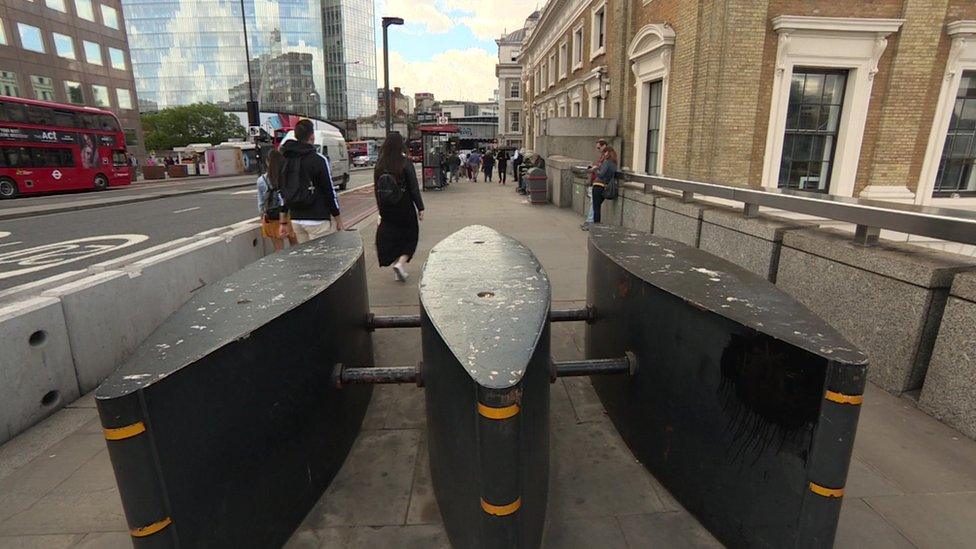
Temporary barriers at London Bridge were due to be replaced with permanent bollards
Plans to install permanent anti-terror barriers on some London bridges are in doubt due to funding issues.
Transport for London (TfL) has revealed work on the structures will not start this financial year as planned.
An inquest following the 2017 London Bridge attack concluded barriers should be installed as soon as possible.
Mayor of London Sadiq Khan previously warned some TfL projects could be scrapped unless a long-term funding deal could be reached.
Temporary barriers were put in place on a number of crossings following the 2017 attack. These were due to be replaced with permanent "hostile vehicle mitigations".
The structures were planned for eight bridges - including on London Bridge, Tower Bridge and Blackfriars Bridge - at a cost of about £35m, to be shared between TfL and the Department for Transport.
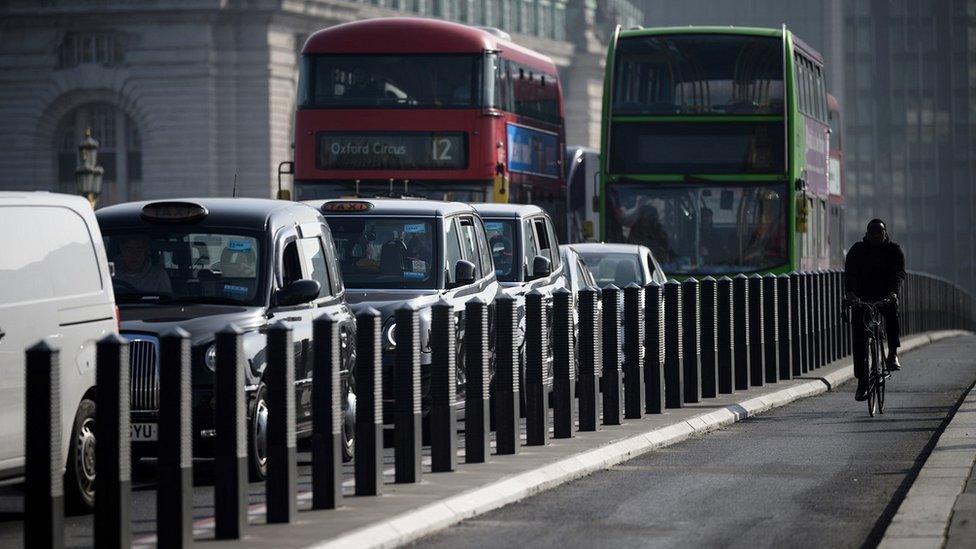
"Heritage style" permanent bollards have been installed on Westminster Bridge
Earlier this year permanent safety barriers, which separate motor traffic from cyclists and pedestrians, were installed on Westminster Bridge.
However, board papers published, external ahead of a TfL committee meeting next week confirmed the work would no longer be completed on the other bridges during 2022-23.
Liberal Democrat London Assembly member Caroline Pidgeon said it was "bitterly disappointing" that the "vital work" was no longer going ahead, and that "proper maintenance of London bridges is being compromised".
According to the Local Democracy Reporting Service, Ms Pidgeon said: "Ugly concrete blocks, often eating into bus lanes, are not the long term solution to delivering public safety and the effective use of London's bridges, especially for cyclists, taxis and bus users."
TfL said it could not confirm whether permanent barriers would be installed in future financial years, but temporary barriers were currently in place to keep people safe.
The transport body has a £1.9bn shortfall in its finances due to a loss of income during the Covid-19 pandemic. It has been receiving government bailouts since May 2020 and wants to agree a long-term deal.
The current funding deal with the government will expire in June.

Follow BBC London on Facebook, external, Twitter , externaland Instagram, external. Send your story ideas to hellobbclondon@bbc.co.uk, external
- Published30 November 2021
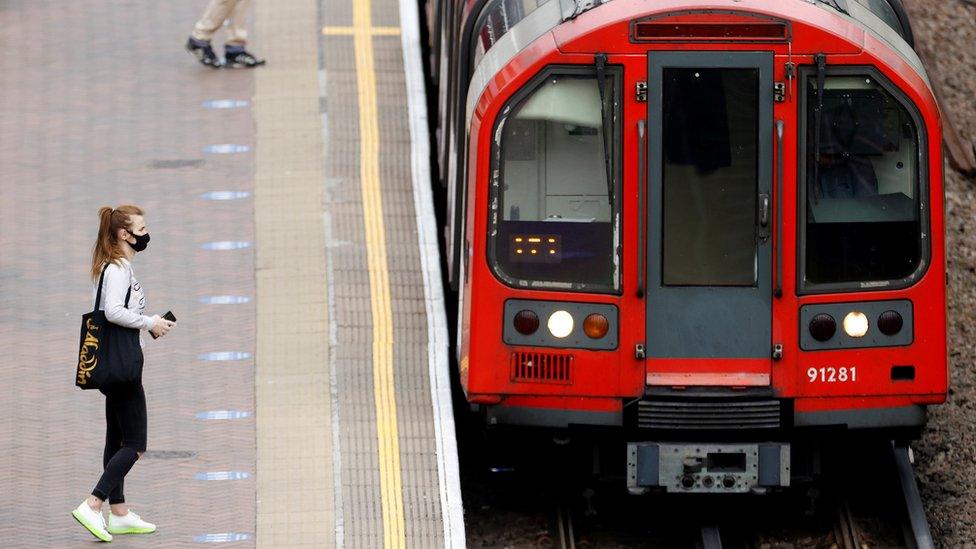
- Published8 December 2021
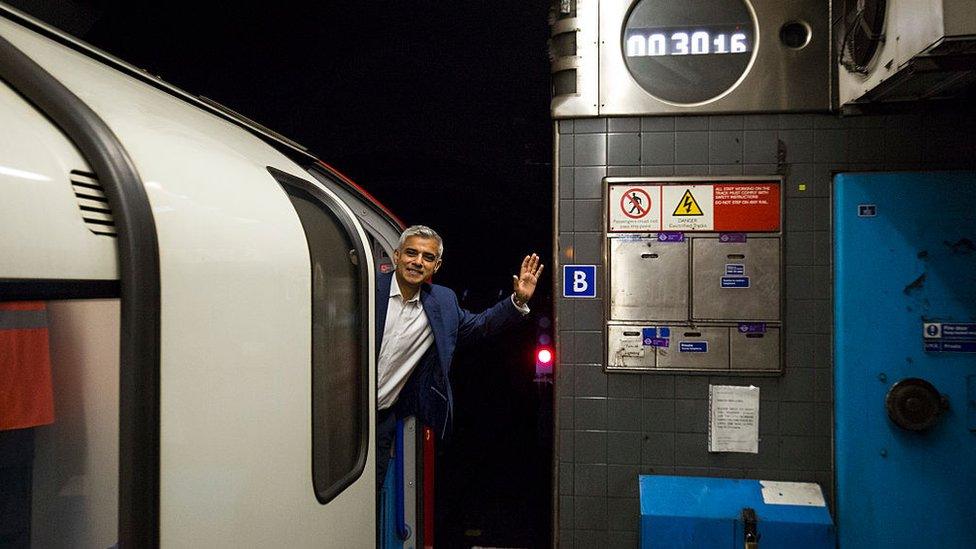
- Published7 December 2021
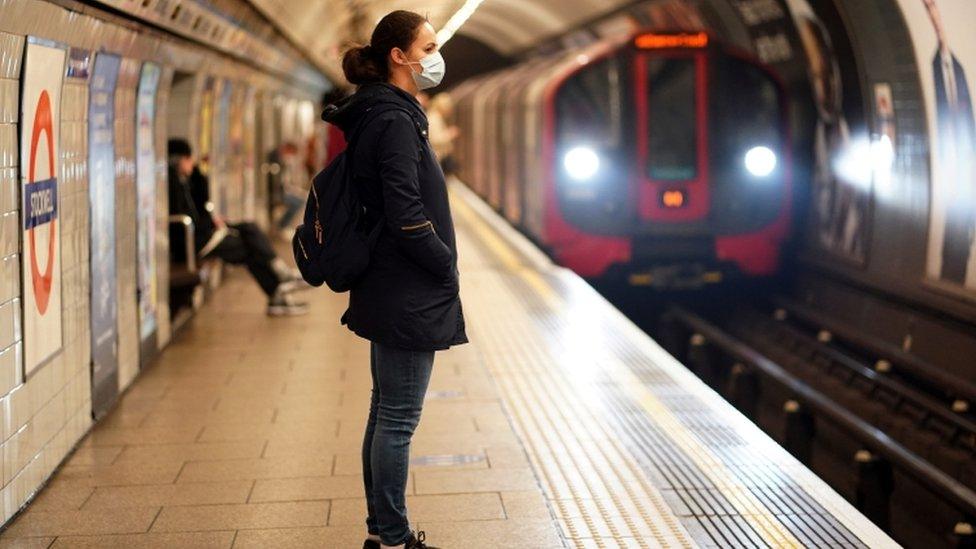
- Published25 February 2022
